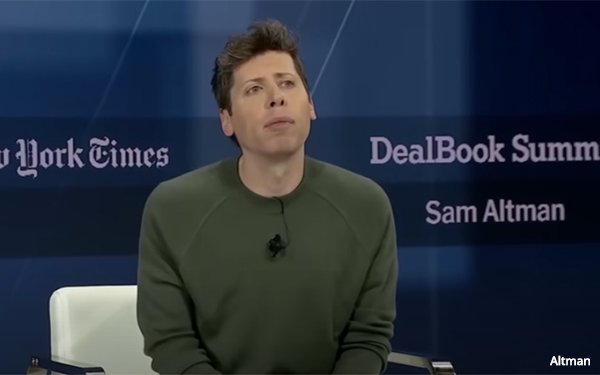
Google CEO Sundar Pichai expects progress in AI
development will slow in 2025, as the company prepares to release its next generation of models.
"I think the progress is going to get harder when I look at '25," he said, speaking
at The New York Times' Dealbook summit early this week. "The low-hanging fruit is gone. The hill is steeper."
Pichai is confident the industry will see a lot of progress in 2025.
Models will get better at reasoning and completing a sequence of events more reliably. Google is in the earliest stages of a profound shift in AI. “We are building foundational models and using
them internally,” he said. “There is so much innovation today.”
On Monday the company launched Genie 2, a large-scale foundation model from Google DeepMinds. It’s
capable of generating an endless variety of action-controllable, playable 3D environments for training and evaluating agents. Some might call these online games. Based on a single prompt image, it can
be played by a human or AI agent using keyboard and mouse inputs, the company said on its website.
advertisement
advertisement
American startups take 71 cents of every dollar of global AI equity funding, according to CB
Insights. The analyst and research firm also reported that AI talent is concentrated in the U.S., with more than 40% of the world’s AI companies based in the country. This is
creating an innovation gap between the U.S. and other countries.
The amount of attention AI continues to get from the advertising industry makes it obvious.
Pichai is not the only
CEO focused on AI development. It has been nearly two years since Sam Altman, CEO at OpenAI, launched ChatGPT.
During an interview at the summit with Andrew Ross Sorkin, the founder of
DealBook, Altman confirmed it is possible to have super intelligence in several years.
"I expect that in 2025 we will have systems that people look at -- even those skeptical of current
progress -- and say, wow, I didn't expect that," Altman said. "Agents are something everyone is talking about."
The idea of giving AI systems a complicated task like the kind you would give to
a smart human that takes a while to do is the type of thing Altman expects to see a lot of next year.
Altman launched 12 days of OpenAI on Thursday, unveiling new AI features
and products each day. The marketing campaign, called Shipmas, included an updated version of o1 and ChatGPT Pro. The gifts also may include an update of the text-to-video AI
tool, Sora.
Compute, data and algorithms -- or the lack thereof -- can slow progress. It takes all three to scale, Altman said.
OpenAI's relationship with Microsoft has been
rocky lately, but the companies remain partners. "I'm open to us saying we need to build things ourselves and maybe vertical integration will become more important over time, but it's nice to get to
focus on research and products and do what we're good at," he said.
Altman also said OpenAI's search product is his favorite that the company has launched.
There are
things to be nervous about, Altman said, when referring to artificial general intelligence (AGI), and he expects it to take a little longer to disrupt the world than people expect.
“My
guess is that we will hit AGI sooner than most people in the world think and it will matter much less,” he said, adding that a lot of the safety concerns expressed will not come at the AGI
moment, but rather when the industry moves into super intelligence, “and that’s when we should get worried.”